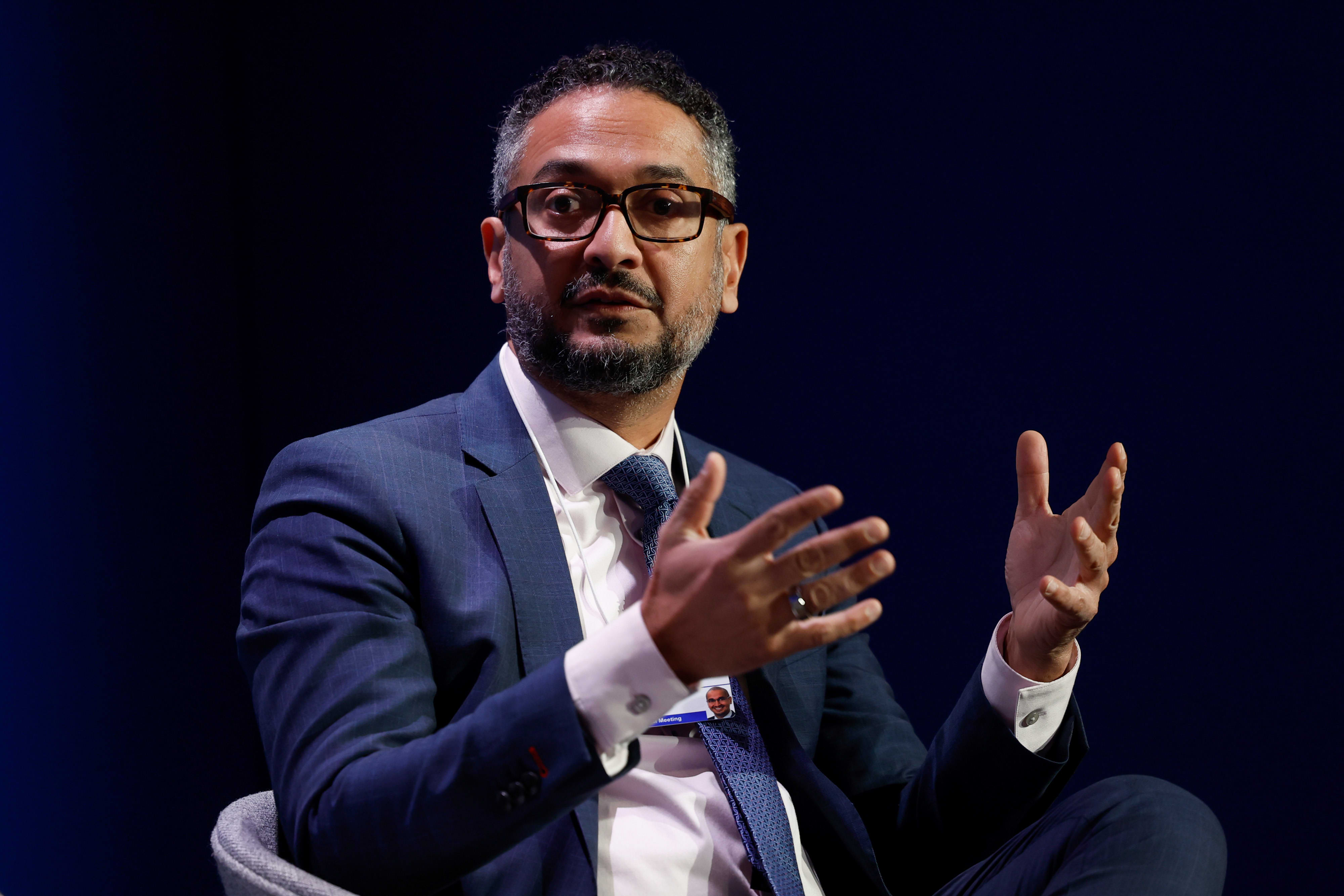
Francis deSouza, chief executive officer of Illumina Inc., during a panel session on day three of the World Economic Forum (WEF) in Davos, Switzerland, on Thursday, Jan. 19, 2023.
Stefan Wermuth | Bloomberg | Getty Images
The Federal Trade Commission on Monday ordered Illumina to divest its controversial acquisition of cancer test developer Grail, saying the deal would stifle competition and innovation.
The decision reverses an administrative judge’s September ruling, which dismissed the FTC’s initial challenge to the $7.1 billion deal.
“The Commission found that the acquisition would diminish innovation in the U.S. market for [multi-cancer early detection] tests while increasing prices and decreasing choice and quality of tests,” the FTC said in a press release. “This is extremely concerning given the importance of swiftly developing effective and affordable tools to detect cancer early.”
Illumina said in a statement that it intends to appeal the FTC’s decision in federal court and will seek an expedited decision. The DNA sequencing company noted it believes it has a “strong case on appeal,” pointing to how it prevailed over the FTC last year.
Shares of Illumina were down more than 2% in afternoon trading Monday.
Illumina said it expects a final decision on an appeal in late 2023 or early 2024. That’s also when the company expects a decision on its appeal of a similar order by European Union regulators, Illumina added.
The EU’s executive body, the European Commission, last year blocked Illumina’s acquisition over similar concerns that it would hurt consumer choice and innovation. Illumina said last month it has challenged the European Commission, arguing the agency lacks jurisdiction to block the merger between the two U.S. companies.
Illumina said Monday that winning those appeals would “maximize value for shareholders,” the company added.
“It enables Illumina to expand the availability, affordability and profitability of the groundbreaking Galleri test in the $44-plus billion multi-cancer screening market,” Illumina said, referencing a Grail test product that screens for more than 50 types of cancers through a single blood draw.
The test generated $55 million of revenue in 2022 and is slated to rake in up to $110 million this year, according to Illumina.
The FTC on Monday issued an accompanying opinion to its order, highlighting how Illumina is the dominant producer of next-generation genetic sequencing platforms. Those products are a “critical component” of multi-cancer screening tests because they are used to analyze genetic material from blood samples drawn for the tests, the commission noted.
Illumina will likely remain the “only viable supplier” of those platforms in the near future, which could harm competition, the FTC said.
“The acquisition of GRAIL potentially gives Illumina incentives to favor GRAIL over its rivals by providing GRAIL preferential access or preferential terms for acquiring NGS inputs,” the FTC said. “Such preferences could distort competition in the research, development, and commercialization of [multi-cancer early detection] tests.”
Illumina also “stands to earn substantially more profit on the sale of GRAIL tests than it does by supporting rival test developers,” the commission added.
The FTC also rejected Illumina’s claims that the acquisition would “save lives” by accelerating the development, approval and adoption of Grail’s cancer tests. The commission’s opinion said it believes letting competition flourish would “do more to save lives than allowing a monopolist to vertically integrate and capture the market.”
Illumina’s acquisition of Grail has sparked backlash from another opponent in activist investor Carl Icahn, who has a 1.4% stake in Illumina. His resistance to the deal stems from Illumina’s decision to close it without approval from antitrust regulators. Icahn launched a proxy fight last month, seeking seats on Illumina’s board of directors and urging the company to unwind the deal.
Icahn did not immediately respond to a request for comment.
This article was originally published on CNBC

